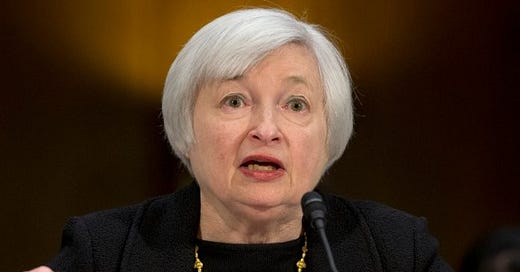Can the Fed Really Fight Global Conditions?
Last month, I suggested the Fed’s decision to embark on a course of rate hikes might have to be reversed due to forces outside its control. Recent events in the global economy are making this reversal increasingly likely.
The S&P 500 and Down Jones Industrial Average saw their worst two-week starts to a year on record, each falling by about 8 percent this year. The NASDAQ was down 10%. These drops have come amid plunging oil prices and growing concerns about the Chinese economy.
Oil prices dropped to their lowest levels since 2003. Supply currently exceeds demand by over a million barrels a day, driven by OPEC’s refusal to curb output and continued strong American production. The introduction of Iranian oil into the world market following the removal of sanctions threatens to make the situation worse. These low oil prices are stoking fears that US oil companies may face a severe credit crunch.
Meanwhile, China is adding to global economic uncertainty, with a chaotic start to the year in their financial markets. In early January, sharp dips in Chinese stocks tripped circuit breakers, halting trading. The Shanghai market is down double-digits year to date. Earlier this week, Chinese officials announced their economy had grown 6.9% in 2015, the slowest growth rate in 25 years. The IMF predicts that this rate will slow to 6.3% in 2016 and 6.0% in 2017.
Rising risk of political instability throughout the world has also made investors nervous. Low oil prices have generated record budget deficits in Saudi Arabia, forcing the government to cut social spending, prompting the specter of a popular backlash. South Africa is also facing increasing risk of political instability, as low commodity prices and China’s slowdown have driven a plunge in the Rand, anemic economic growth, and high unemployment rates.
Moreover, over a million refugees entered Europe last year, generating populist pressures across the region. Both Angel Merkel and Jean-Claude Juncker have warned publicly that a brash response to the crisis could fatally wound the European experiment. As I've noted before, I think we will either see a United States of Europe or a disintegration of the union. It's not sustainable as it is.
All these factors have lead to renewed fears of spreading recessions and a global economic slowdown. The IMF lowered its forecast for global growth in 2016 to 3.4%.
In the background of this fragility lies what the Financial Times’ Martin Wolf calls “chronic demand deficiency syndrome,” summarized by a condition in which "it has proved impossible to generate enough demand to absorb potential global supply” without very aggressive monetary policy and asset-price inflation. With too much supply and inadequate demand, inflation remains persistently low. At this stage of the economic cycle, an increase of productivity could actually be quite harmful, since it offers the prospect of efficiently producing more supply, not exactly what we need in a world of too much capacity.
At this stage of the economic cycle, an increase of productivity could actually be quite harmful.
Here at home, data released since the Fed’s December rate hike aren’t too rosy. Retail sales, industrial production, and business inventories fell last month. And analysts fear that the increase in market volatility and talk of recession risk could spook consumers, contributing further to a slowdown in US growth. Inflation, supported by falling oil prices, remains well contained.
All of this turmoil and rising pessimism follow the Fed’s December decision to raise its key interest rate to .25%, and suggest that four more hikes would follow in 2016, starting in March 2016. But just last week, the president of the Boston Fed announced publicly that weaker than expected growth in the US and abroad could alter the trajectory of rate hikes. Currently, markets do not expect the Fed to act again until June.
A lot will happen between now and March that could shift expectations in either direction. The key is to remember that the Fed faces the same radical uncertainty as everyone else, and its plans are subject to the same chaotic forces that affect us all. But given what I see in the world today, I think the answer to the title of this article is "probably not."
Vikram Mansharamani is a Lecturer at Yale University in the Program on Ethics, Politics, & Economics. He is the author of BOOMBUSTOLOGY: Spotting Financial Bubbles Before They Burst (Wiley, 2011). Visit his website for more information or to subscribe to his mailing list. He can also be followed on Twitter or by liking his Page on Facebook.





